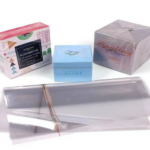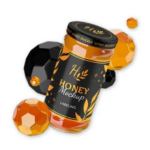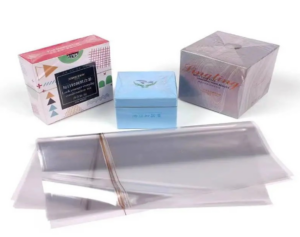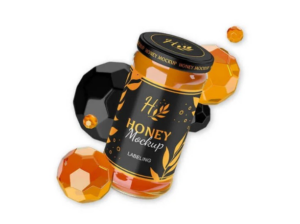Flexible packaging has become the backbone of the packaging industry for years. This technique uses flexible materials like plastic to create containers for products like bags, pouches, sachets, and roll stock. It has many benefits that make it demanding in the packaging market.
Due to the rise in ready-to-eat products in the food industry and consumer goods have increased the demand of CPP films for the packaging industry.
According to Persistence Market Research, the Global CPP films market generated revenue of US$ 5,553.0Mn in 2022. It is expected to reach US$ 8,748.2Mn in 2023 at a ~4.2% CAGR from 2023 to 2033.
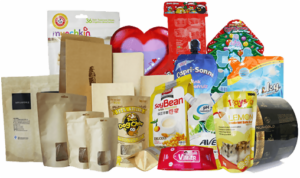
Flexible Packaging
Benefits of Flexible Packaging for Packaging Industry
Flexible packaging has become an essential part of the packaging industry for several reasons. Here are some of the reasons why flexible packaging is good for the packaging industry:
- It is cost-effective because it requires less material, and is cheaper to produce, transport, and store.
- It can be customized according to the basic needs of products. It can be customized in different shapes, colors, and sizes that attract customers.
- It provides good protection for products against the environment. It contains moisture and oxygen barriers that prevent the products from spoiling. It also protects the product from other environmental factors like light and heat.
- It is a sustainable option for packaging products. It is made from materials that are recyclable, biodegradable, or compostable. This means that it has less impact on the environment and helps to reduce waste.
- It is convenient for the customers to use. It is lightweight, easy to open, and portable, making it a good choice for customers.
- It can create innovative designs for products. This can be made with resealing options to keep the product fresh for longer, spouts for easy pouring of liquids, and tear notches. It can also be designed with interactive features such as QR codes for a better customer experience.
What Is Cast Polypropylene Film (CPP)?
Cast Polypropylene film is a type of plastic film that is made up of polypropylene through the cast film manufacturing process. It is a better choice for flexible packaging due to its versatile properties. CPP, as compared to other plastic films, has excellent heat-sealing properties and high tear resistance which is why it is preferred by most retailers.
How Is Cast Polypropylene Film Made?
CPP film is made by melting polypropylene resin pellets and extruding them through a flat die to form a thin, continuous film. The film is then stretched in the Cast CPP Film Machine to improve its mechanical properties. The film is then cooled and wound into rolls for further processing.

Cast Polypropylene Film
Types of Cast Polypropylene Film
There are several types of CPP (Cast Polypropylene) film available in the market; each film is designed for specific applications. Here are some of the common types of CPP film:
1. General Purpose Cast Polypropylene Film
This is a versatile film that is suitable for a wide range of applications, including:
- Food packaging
- Industrial packaging
- Lamination
It has good clarity, heat sealability, and mechanical properties.
2. Metallized Cast Polypropylene Film
The metalized CPP film is coated with a thin layer of metal (usually aluminum) to provide a metallic appearance and improve its barrier properties. It is commonly used for high-barrier applications, such as packaging for snacks, coffee, and pet food.
3. Retort Cast Polypropylene Film
This film is designed for use in retort packaging applications, where the packaged product is heated to high temperatures (up to 130°C) to sterilize it. It has an excellent heat resistance and stability to withstand the retort process.
4. Anti-Fog Cast Polypropylene Film
This film is treated with an anti-fog agent to prevent fogging and maintain clarity in high-moisture environments. It is commonly used for packaging fresh produce, meat, and dairy products.
5. Solid White Cast Polypropylene Film
This film is designed to provide an opaque, white appearance for packaging applications where product visibility is not required. It is commonly used for packaging products that require protection from light, such as pharmaceuticals and medical devices.
Why Is Cast Polypropylene Film Ideal for Flexible Packaging?
Cast Polypropylene film has several desirable properties that make it ideal for packaging applications. The following are the properties that make CPP film an ideal choice for flexible packaging:
Clarity and Transparency
CPP film is highly transparent and offers excellent clarity, which makes it ideal for packaging applications where product visibility is necessary.
Heat Sealability
CPP film can be easily sealed with heat, making it ideal for creating a secure package. It also offers good hot tack, which means it can be sealed at lower temperatures, reducing the risk of damaging the product.
Moisture and Chemical Protection
CPP film offers excellent moisture barrier properties, which makes it ideal for packaging products that are sensitive to moisture, such as food and pharmaceuticals.
It is also resistant to a wide range of chemicals, including acids, alkalis, and oils, which make it ideal for packaging products that, require protection from these substances.
Puncture Resistance
CPP film offers good puncture resistance, which makes it ideal for packaging products that are susceptible to damage during handling and transportation.
Dimensional Stability
CPP film has excellent dimensional stability, which means it maintains its shape and size even under extreme conditions such as high temperatures and humidity.
It also has a low coefficient of friction, which makes it easy to handle and process on packaging machinery.
Printability
CPP film can easily be printed using a variety of printing methods which allows for high-quality branding and product labeling.
Applications of Cast Polypropylene Films for Flexible Packaging
CPP film is a versatile material that finds applications in a wide range of flexible packaging industries including food, confectionery, bakery, frozen food, meat and poultry, pet food, personal care, and pharmaceuticals.
Due to its excellent physical and mechanical properties, its combination of clarity, heat sealability, moisture barrier properties, and printability makes it a popular choice for a variety of packaging applications.

CPP Film for Pharmaceuticals
Conclusion
In conclusion, CPP films are a revolutionary addition to the flexible packaging industry in 2023. Due to its unique properties and cost-effectiveness, it has become a preferred choice for retailers around the globe.
As technology continues to advance, we can expect to see even more innovative uses for CPP films in the flexible packaging industry. Overall, CPP films are an exciting addition to the packaging industry, providing solutions that meet the growing needs of consumers, manufacturers, and retailers alike.

